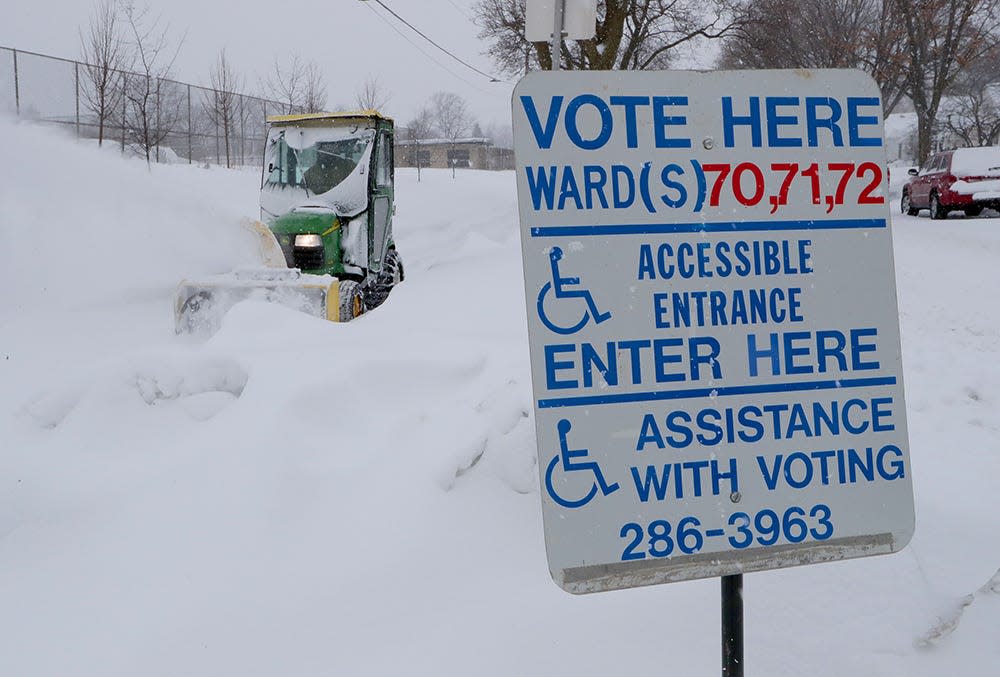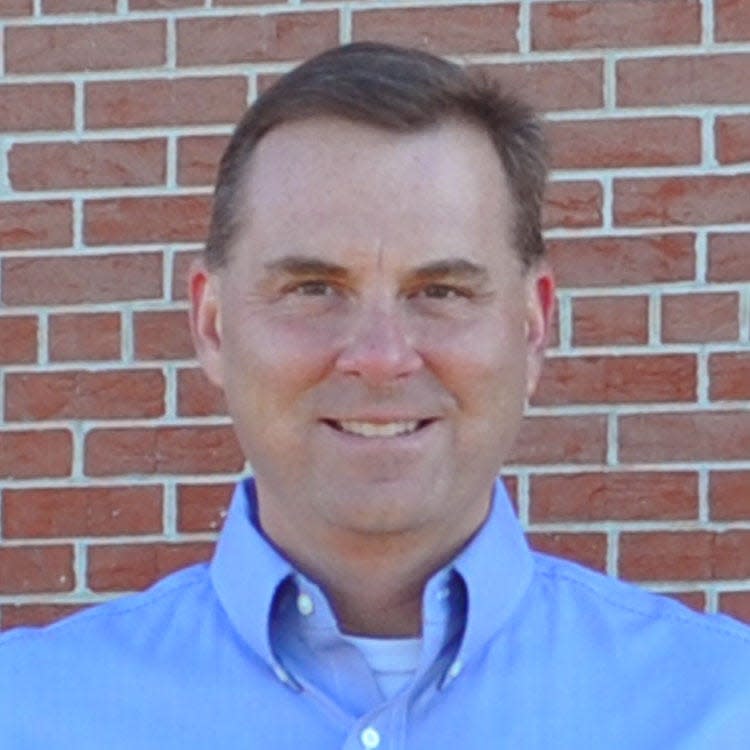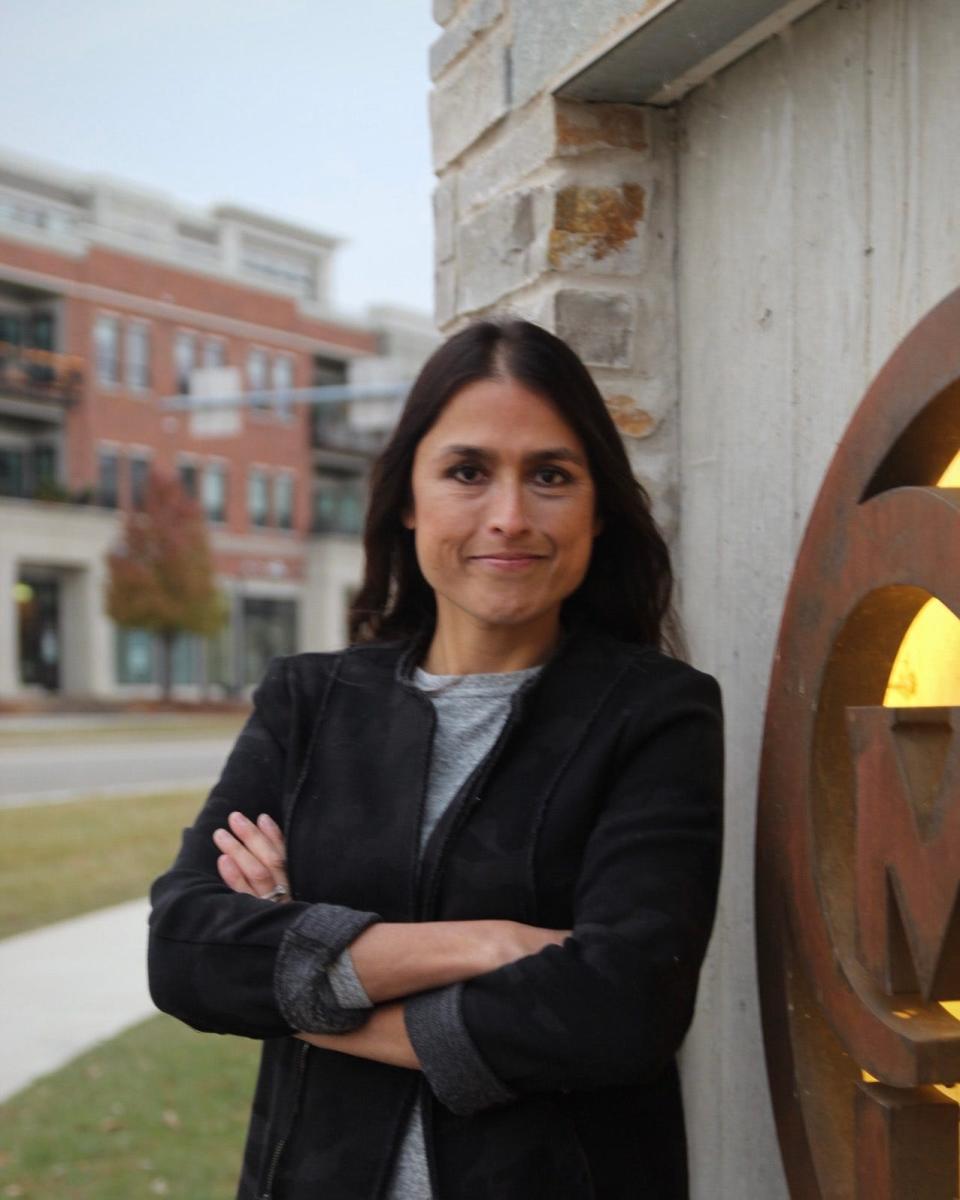Mequon-Thiensville School Board candidates discuss improving academic performance, race and diversity and COVID-19 mitigation measures

The Mequon-Thiensville School District was the scene of a months-long effort to try to recall incumbent school board members Wendy Francour, Erik Hollander, Akram Khan and Chris Schultz. Those efforts ultimately failed, as a majority of voters rejected the recall in last November's recall election, and all four incumbents retained their seats.
After the spring election, at least two of those seats will have new board members, as Khan and Schultz are not seeking reelection.
Five candidates are seeking to fill those positions. The Feb. 15 primary will narrow the field to four, who will advance to the April 5 general election. The two candidates with the most votes there will earn three-year terms on the school board.
In the running this time are: Scarlett Johnson, one of the recall effort's candidates in November; former Mequon-Thiensville School Board member and treasurer Paul Buzzell; Jill Chromy; Maria Douglas and Jason Levash.
The candidates responded to a questionnaire about local issues. Their answers were limited to 100 words.
Declining academic performance was an issue often brought up during the November recall election. What would you do to help the district improve academic performance?
Paul Buzzell: Pandemic disruptions to education are a national problem. MTSD, in fall 2020, recognized potential for unfinished learning and in spring 2021, proactively introduced its academic recovery plan. To get on track, each board member must be able to connect student achievement strategies to our proprietary seven milestones for post-secondary success, and drive rigorous expectations, outcomes and continuous improvement. We must also have planned responses to declining national recruitment pools and large 2023 projected CPI increases. In 2021, DPI ranked MTSD No. 6 in K-12 Wisconsin school districts. Continued educational excellence will also require continued adherence to good governance, policy and strategy.
Jill Chromy: As a board member, I would support the MTSD academic recovery plan, which includes personalized support for students, a pathway for credit recovery in high school, and utilization of specialists and mentors to support teaching staff. It’s important to look for ways to better connect with and hear the voices of parents. I’d advocate for parent/stakeholder focus groups to garner their feedback in academic areas. This would build trust, identify areas of concern, which might be missed in a survey, and better engage parents on how to support their students and the teaching staff.
Maria Douglas: MTSD is ranked No. 2 in the state by Wisconsin DPI. However, student achievement data show that unfinished learning has occurred during pandemic-related disruption. Our district has instituted a board-approved academic recovery plan, which I fully support, and would continue to monitor: Summer Academic Boost, student support coordinators, tech-based literacy and mathematics interventions, real-world exemplar applications for solving mathematical problems, student review teams providing a credit recovery pathway to accelerate credit attainment, and learning support teams to develop and implement a grade-improvement plan for students reporting below-average progress. District performance is critical to maintain our high property values.
Scarlett Johnson: MTSD students need more direct instruction, smaller classes, differentiated learning, specialized classrooms and a rigorous curriculum. I want to help reinvigorate our accelerated learner programs (TAG), while also improving our special needs programs. On my campaign website I detail several initiatives, which are the result of countless conversations with educators and parents who want classrooms to get "back to basics." As a board of education member, I will work to improve academic performance using a student-centered approach, in which teachers are provided the support they need, and parents are treated as partners.
Jason Levash: The top priority for the district should be to address learning loss as a result of the pandemic by ensuring its academic recovery plan is being deployed with fidelity and supported with adequate resources. The plan needs to be studied frequently for effectiveness and innovative actions need to be taken at the grade and individual levels to adjust the plan to ensure all students are engaging in a rigorous curriculum to close the gap. These actions will also support improvement in the district’s student growth and target group outcomes on the state report card and increase overall student achievement.
The role of race and diversity in the district's curriculum was another issue brought up during the recall. How should the district teach about topics related to race and diversity?
Buzzell: MTSD follows Wisconsin social studies standard SS.BH2: “Wisconsin students will investigate and interpret interactions between individuals and groups (Sociology),” which can include “race.” However, the recall movement’s claim was specifically critical race theory was taught at MTSD. When this was proven false, the narrative shifted to “educational equity was code for CRT.” This was also proven false. Since the national movement to flip school boards appears over, and movements to recall other Wisconsin school boards have ended, there has correctly been no discussion in our community over it again. CRT does not belong in K-12 curriculum. Everyone actually agrees.
Chromy: MTSD is composed of students and families that represent a variety of cultures, religions, economic backgrounds, disabilities and academic abilities. Our school community has voiced that all students should feel a sense of belonging. Students should respect and value one another and see strength in our differences. Resources within our libraries and culturally relevant curriculum should be available and utilized within the classroom. Teachers can then facilitate meaningful discussions that allow students to gain a deeper understanding of one another.
Douglas: The board of education leaves curriculum material to the experts: the administration, director of curriculum and instruction and Wisconsin Department of Public Instruction. Elected board members are entrusted by the voters to act as liaison between school administration and families, not to write their own curriculum. MTSD education specialists promote accurate historical and current events, thus empowering our students to successfully navigate successfully in today's world. As a school psychologist for over the past 12 years, I fully support my fellow public school educators.
Johnson: When the average person ponders the term “equity” they think “equal opportunity.” In reality, “equity” in education policy translates into equalizing outcomes among groups, usually based on group identity. This needs to change. "Equity” should refer to the principle that everyone must receive fair and impartial treatment, regardless of their identity. All individuals must have equal opportunities to participate in and benefit from the district’s programs. MTSD should ensure that every single student is seen, heard and valued as a singular personality, not simply a representative member of a monolithic identity group.
Levash: The district has adopted the 2018 Wisconsin State Standards for Social Studies, which identify what students should know and be able to do. The standards do include performance indicators related to race and diversity and clearly establish what should be taught in MTSD. It is the responsibility of the professional educators to foster a safe learning environment for all students to engage with rigorous curriculum so they can think critically about the historical, behavioral, geographical and economic elements of race and diversity. The classroom should be free of any theory and practices that teach students what to think.
What are your thoughts on COVID-19 mitigation measures such as mask requirements, testing, school-based vaccine clinics and metrics for going virtual and their use in the district's schools?
Buzzell: As a BOE member, I expect administration to maintain open communication with public health officials and make informed decisions to address communicable diseases. As information becomes available, it’s important we stay flexible and relentlessly responsive to changes, while understanding guidelines don’t move as quickly as we would like. With regards to your list: Masking follows health department guidelines. Free optional testing on campus is a positive for the community. Mequon offers optional vaccine clinics, which is great for those who want it. MTSD efforts to avoid virtual school in all 2021-22 and only four days in fall 2020 is commendable.
Chromy: MTSD follows the CDC’s recommendations for schools. However, listening to many parents’ frustrations with the CDC’s frequently changing recommendations, worry over social, mental health and academic impacts from quarantines and masking, along with medical privacy concerns, signals that it is time to think about an exit strategy from extensive mitigation. Looking to the 2022-23 school year, the time is right to take a formal survey to gauge the views of stakeholders. MTSD currently has a COVID testing site, but no vaccine clinic. Given the large number of community vaccination locations, an MTSD onsite vaccine clinic is not necessary.
Douglas: I believe that our school superintendent and his staff should continue to rely on local and state expert public health guidance. Our superintendent is not a health scientist, so he is in constant discussions with health officials in and outside of our community, weighing the latest science with health concerns, educational achievement, staff workload and health, and a myriad of other issues that factor into his final judgments and recommendations. As a school board member, I believe the board, as a body, should work in unison with the superintendent and health experts to safely keep schools open.
Johnson: MTSD should continue to move forward so that mitigation reflects the latest data, the sensibility of our community and puts students first. As far as masking, the vast majority of masks do not work as intended. Combined with the fact that children have a statistical nil risk from infection, I think it is time to weigh the harm versus benefit of MTSD's COVID mitigation policies. We need to ask, what other forms of harm are we inflicting on our students with ongoing restrictions and mandates? Should we not consider their emotional, psychological and social well-being?
Levash: In person learning is best for the majority of our children and families for academic and social-emotional growth. Having prudent mitigation practices in place allows for learning to continue while supporting the health and safety of students and staff. The updated strategies laid out in the January 2022 MTSD COVID-19 Mitigation Levels document are appropriate for masking and quarantining. Providing additional testing capacity in the community is beneficial to identify illness and ultimately keep healthy children in school. While I support vaccination and vaccine clinics, I do not believe vaccination should be mandatory for our students or staff.
Paul Buzzell

Age: 51
Address: 11556 N. Creekside Court, Mequon
Past political experience: MTSD Board of Education and board treasurer, 2014-17
Community involvement: President, Homestead Booster Club; Co-founder, Inform Mequon-Thiensville; volunteer, Junior Achievement
Contact info: pb@pb4mtsd.com
Jill Chromy

Age: 52
Address: 13033 N Phillip Drive, Mequon
Past political experience: None
Community involvement: PTO president, Lake Shore Middle School; area council representative in MTSD; Destination team manager for MTSD; member, Christ Church, Mequon
Contact info: chromy4mtsd@gmail.com, 414-331-4241
Website: chromy4mtsd.com
Maria Douglas

Age: 43
Address: 3839 W Le Grande Blvd., Mequon
Past political experience: Aided the Coalition to Support MTSD in the recall election, supported several MTSD BOE incumbent and candidate campaigns, advocated for educational continuity and safe schools in MTSD
Community involvement: League of Women Voters, NAACP Ozaukee County
Contact info: 262-546-7510, mariaformtsd@gmail.com
Scarlett Johnson

Age: 47
Address: 10395 N. Wyngate Terrace, Mequon
Past political experience: None
Community involvement/Volunteer experience: Oakleaf Club volunteer and vice president (Oakleaf Club is a charitable organization for spouses of U.S. Navy officers). Oakleaf offers support for members of the military and their families.
Parent volunteer: lunchrooms, playground supervisor, in the classroom (pre-k3 to eighth grade), school fundraising, rainbow Olympics, parent chaperone
Contact info: Scarlett@scarlettforkids.com
Website: Scarlettforkids.com
Jason Levash

Age: 41
Address: 8955 W Highlander Drive, Mequon
Past political experience: None
Community involvement: HOA board member, athletic coach
Contact info: jason@levash4MTSD.com
Website: levash4MTSD.com
Contact Alec Johnson at (262) 875-9469 or alec.johnson@jrn.com. Follow him on Twitter at @AlecJohnson12.
Our subscribers make this reporting possible. Please consider supporting local journalism by subscribing to the Journal Sentinel at jsonline.com/deal.
DOWNLOAD THE APP: Get the latest news, sports and more
This article originally appeared on Milwaukee Journal Sentinel: Two seats up for election in Mequon-Thiensville School Board race

